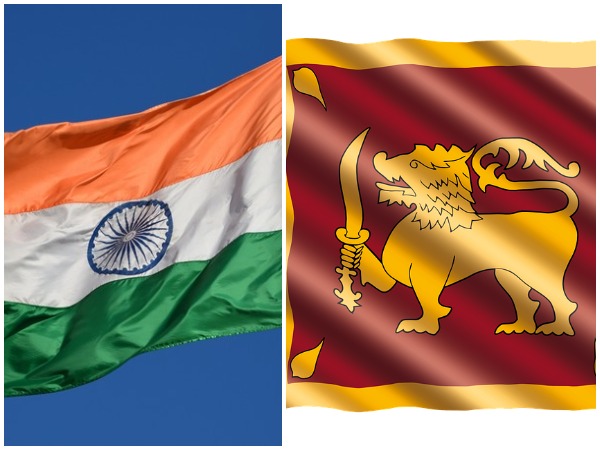
In Sri Lanka’s own interest that expectations of Tamils for equality and justice are fulfilled: India at UNHRC

United Nations/Geneva, Mar 5 (PTI) India has told the UN that it is in Sri Lanka’s own interest that expectations of Tamils for equality, justice, peace and dignity within a united country are fulfilled, underlining that as a friend and immediate neighbour, New Delhi has consistently called upon Colombo to fulfil its commitments on protecting the interests of the Tamils.
India’s Permanent Representative to the UN, Geneva, Ambassador Indramani Pandey made the statement on Friday at the interactive dialogue on the High Commissioner for Human Rights report on promoting reconciliation, accountability and human rights in Sri Lanka. He said that as its friend and immediate neighbour, India has consistently called upon Sri Lanka to fulfil its commitments on addressing the issues related to protecting the interest of Tamils in Sri Lanka.
“India believes that it is in Sri Lanka’s own interest that the expectations of Tamils in Sri Lanka for equality, justice, peace and dignity, within a united Sri Lanka, are fulfilled. This applies equally to the commitments made by the Sri Lankan Government on meaningful devolution, including through the 13th Amendment to the Sri Lankan constitution,” he said.
India has insisted that it would want Sri Lanka to pursue the 13th Amendment, also known as 13A, as the tool to address the concerns of the Tamils on devolution of power. The amendment is aimed at creating provincial councils in Sri Lanka and enable Sinhalese and Tamil as national languages while preserving English as the link language. The amendment brought in elected councils to each of Sri Lanka’s nine provinces with a temporary merger of the north and eastern provinces which the LTTE, who led a bloody separatist campaign, called the Tamil heartland.
Pandey said that the Indian delegation has taken note of the engagement by the government of Sri Lanka with the members of the international community and other relevant organisations on various aspects of the human rights situation and reconciliation issues in Sri Lanka. “We would like such engagements and productive and purposeful dialogue to continue among the relevant stakeholders,” he said. Pandey said the report raises important concerns on promoting, reconciliation, accountability and human rights in Sri Lanka.
“We call upon Sri Lanka to take the necessary steps to address the legitimate aspirations of the Tamil community, including by carrying forward the process of reconciliation and the implementation of the Thirteenth Amendment to the Constitution of Sri Lanka, to ensure that the fundamental freedoms and human rights of all its citizens are fully protected,” he said.
He said India will continue to urge the Sri Lankan government for the early conduct of elections to the provincial councils in keeping with its commitment to devolution of power. United Nations High Commissioner for Human Rights Michelle Bachelet, introducing the report on Sri Lanka, said the government should take further steps to address the fundamental problems with the Prevention of Terrorism Act and undertake deeper legal, institutional and security sector reforms that were critically needed to put an end to impunity and prevent any reoccurrence of past violations, according to a UN press release.
She said victims and their families continued to be denied truth and justice. There was deep concern about the concentration of civilian positions in the hands of military officials, some of them implicated in serious allegations of human rights violations. The Council should pursue alternative strategies to advance accountability at the international level, she said.
The report noted that in his address to the 76th session of the General Assembly in September, Sri Lankan President Gotabaya Rajapaksa had affirmed the government’s “firm intention to build a prosperous, stable and secure future for all Sri Lankans,” regardless of ethnicity, religion or gender. “However, actions by the government during the past year have reinforced the nexus between Sinhalese nationalism, Buddhism and the state, increasing the sense of marginalisation and anxiety among Tamil, Muslim and Christian minority communities, and undermining the prospects for reconciliation,” the report said.
The report said that the High Commissioner remains concerned about the lack of accountability for past human rights violations and recognition of victims’ rights. “In the last two years, the independence of the judiciary, the Human Rights Commission and other key institutions have been eroded, and democratic space, including for human rights advocacy constricted,” it said.
Bachelet recommended that the Sri Lankan government should ensure the drafting process for a new Constitution is based on broad and inclusive consultations, entrenches the independence of judiciary and key national institutions, and advances the devolution of political authority, which is integral to reconciliation and the full enjoyment of human rights by all members of its population.
The Liberation Tigers of Tamil Eelam (LTTE) waged a war with the Sri Lankan government to carve out a separate Tamil homeland with the conflict ending in 2009 when the government forces killed its chief Velupillai Prabhakaran. According to the Lankan government figures, over 20,000 people are missing due to various conflicts including the three-decade brutal war with Lankan Tamils in the north and east which claimed at least 100,000 lives.
The Tamils alleged that thousands were massacred during the final stages of the war.
PT YAS RS AKJ RS

















POST COMMENTS (0)